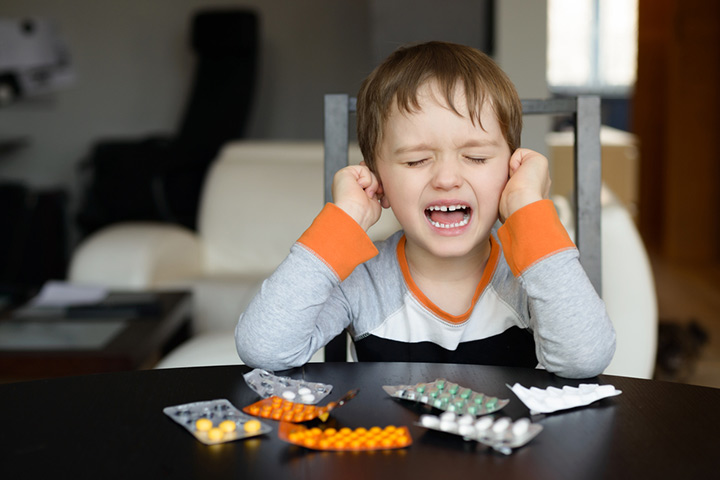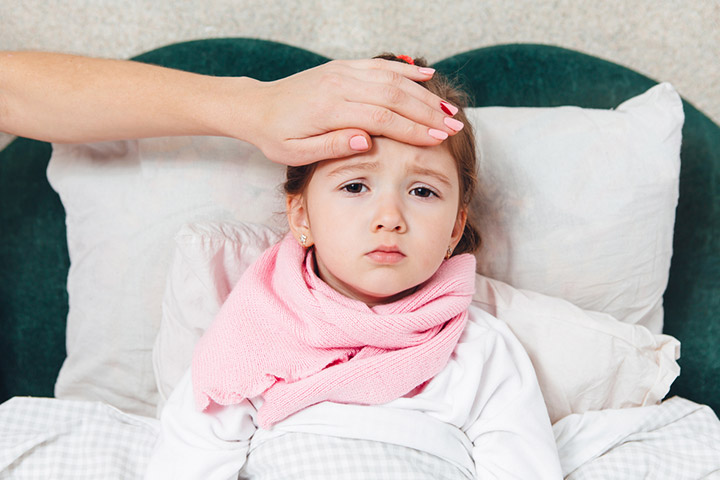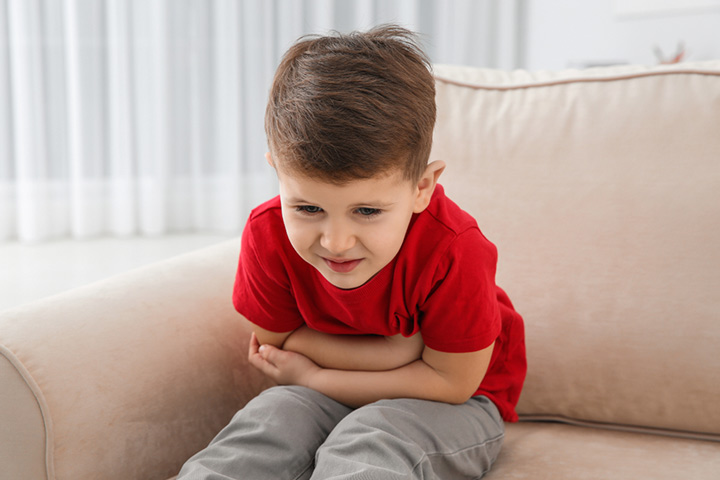
Image: Shutterstock
Often in the middle of countless vaccines and ‘dadima ke nuskhe’ for the overall well-being of your child, deworming frequently misses the spotlight. Unless symptoms begin to show, that is.
It’s not uncommon for mothers to start the deworming process when it’s already turned into a problem you wish your child never had. Common though as it might be, you know what they say — prevention is better than cure. And we, for one, heartily believe in this age-old saying.
Deworming your child is not only of vital importance; it’s something you must do regularly to ensure the holistic growth and development of your child.
Let’s get down to the basics of deworming, starting with why it’s so important.
Why Deworming Your Kid Is Crucial
Image: Shutterstock
Did you know even adults can get worms? A host of worms can be found in the human body — ranging from hookworms and roundworms to pinworms, tapeworms, and more (1)!
These parasites feed off of the body of their host, never releasing their grip on the body unless dealt with medically. Sometimes these worms can cause infections if left untreated for a long time, infesting the walls of the intestine and camping out there till weeded out.
So if that isn’t enough reason to deworm your child already, there are actually more causes to get started with the deworming process ASAP (2).
- Deworming your child can enhance their immunity, thus protecting them from a host of chronic diseases that are caused by worms.
- Worms can irritate your child, robbing them of the focus and attention they need to be productive. Deworming can help them regain their focus at school, thus improving performance.
- Another benefit of deworming your child is that it improves your kid’s nutritional uptake. This can contribute significantly to their holistic development and can even help manage anemia (3).
- Deworming can help control the spread of infections in the community and can help improve a child’s weight (4).
- Lastly, it considerably lowers the chances of kids being admitted to hospitals due to abdominal pain.
How Frequently Should Deworming Be Performed?
Image: Shutterstock
Now that you know how crucial deworming is to your child’s health, the next step is to know how often it should be done.
Experts recommend starting the process of deworming from 2 years of age and getting it done twice every year – once every 6 months preferably (5).
If your child suffers from recurring infections, more frequent deworming sessions may be required. It’s best to consult your pediatrician in this regard.
Moreover, if you happen to live in endemic areas, community deworming of the kids of the locality may be required. This will prevent massive outbreaks and reduce the chance of further infections. After all, it’s always better to be safe than sorry.
What Happens If You Don’t Deworm Your Child
Image: Shutterstock
There are consequences to not deworming your child. If you do not conduct regular deworming sessions, your child may suffer from serious health issues. These can range from anywhere between vomiting to diarrhea and excruciating abdominal pain. In such cases, you’ll need to consult with your local pediatrician for the best course of action. That said, if you’re worried that deworming medicines won’t be safe for your child, do not worry. Most medicines are safe, and you can always talk to your doctor about which one is best for your child. Your doctor will guide you through the whole process.
Symptoms Of A Worm Infection
Image: Shutterstock
Wondering if your child has a worm infection and is in need of treatment? A worm infestation can manifest itself in many ways. Roundworm infections are the most common in tropical and subtropical regions. Here are the signs and symptoms you should look out for to know if your child has got the worms in his tummy (6):
- Worms in the stool that look very similar to earthworms
- Worms expelling from the child’s mouth or nose
- Stomach ache
- Loss of appetite
- Fever
- Weight loss and hampered growth
- Wheezing and coughing
- Vomiting
- Hard, bloated, and painful belly
Bear in mind that older kids likely may not show any symptoms of a worm infestation. These signs and symptoms are more likely to occur in younger children as their intestines are smaller, leaving less room for the worms to grow.
What Are The Precautions You Need To Take Prevent Worm Infections
Image: Shutterstock
Worm infections can seem very scary, but they are relatively easy to manage and quite easy to prevent. As parents, it’s your duty to take certain precautions so you can prevent infections (7).
Ensure your kids wash their hands after playing outside and coming back home. They should also thoroughly wash their hands after playing with kids or interacting with animals.
Kids should not be allowed to eat or drink contaminated water and food as they are one of the most common sources (and causes) of worm infections. Ensure you wash all fruits and veggies carefully before giving them to your kids, and never allow them to eat improperly cooked or uncooked meat.
Taking necessary precautionary measures, conducting frequent deworming sessions, and detecting symptoms can prevent and treat infections so your child can lead a happy and healthy life.

















